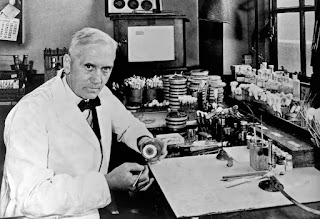Sir Alexander Fleming and the Revolutionary Impact of Penicillin
In the annals of medical history, few discoveries have been as transformative as the serendipitous finding of penicillin by Sir Alexander Fleming. A Scottish bacteriologist and pharmacologist, Fleming's contribution to the field of medicine has left an indelible mark, saving countless lives and revolutionizing the treatment of infectious diseases.
Sir Alexander Fleming was born on August 6, 1881, in the quaint setting of Lochfield, near Darvel, Ayrshire, Scotland. His academic journey began in local schools, Louden Moor School and Darvel School, followed by Kilmarnock Academy. Seeking broader horizons, he relocated to London, where he furthered his studies at the Polytechnic. Eventually, his passion for medicine led him to St. Mary's Hospital Medical School, London University, where he embarked on a trajectory that would forever alter the medical landscape.
The year 1928 was pivotal. While conducting experiments at St. Mary's Hospital, London, Fleming made a remarkable observation. A mold known scientifically as *Penicillium notatum inhibited bacterial growth on a petri dish left inadvertently open. This mold released a substance that effectively combated a variety of bacteria. Recognizing the potential implications of his discovery, Fleming named this substance "penicillin."
As science often advances on the stepping stones of previous knowledge, it's worth noting that before Fleming's discovery, the medical community had already recognized the antibacterial properties of molds. Yet, Fleming's meticulous observations and experiments elucidated the specific therapeutic potential of penicillin.
Before the antibiotic era, humanity was often at the mercy of infections. Due to potential bacterial infections, superficial wounds from daily activities or surgical procedures posed life-threatening risks. Diseases like syphilis, meningitis, and pneumonia carried daunting mortality rates. With the advent of penicillin, these scenarios began to change drastically.
Medical Procedures and Treatments: The once considerable risk accompanying surgeries diminished as penicillin could be employed to prevent postoperative infections. Its efficacy was also observed in treating a myriad of diseases. For instance, before penicillin, syphilis was a significant public health concern with limited treatment options. With the introduction of penicillin, it became a treatable condition, reducing its prevalence and associated morbidities.
Economic and Societal Ramifications: Healthier populations invariably lead to more robust economies. As infections became more manageable, individuals lived longer, healthier lives, leading to a more productive workforce and subsequent economic growth. On a societal level, alleviating the constant threat of infectious diseases led to enhanced well-being and societal advancement.
However, every silver lining has a cloud. The widespread use of penicillin, sometimes misused or overused, gave rise to another challenge: antibiotic resistance. Some bacterial strains evolved mechanisms to counteract the effects of penicillin, necessitating the development of new antibiotics and underscoring the importance of judicious antibiotic use.
The story of Sir Alexander Fleming and his discovery of penicillin is a testament to the profound impact of scientific curiosity and diligence. From a fortuitous observation in a London lab, the world witnessed a medical revolution, reaping the benefits of enhanced health, economic growth, and societal progress. While challenges like antibiotic resistance remind us of the ever-evolving nature of science, Fleming's legacy stands as a beacon of hope and innovation in the annals of medicine.


Comments
Post a Comment